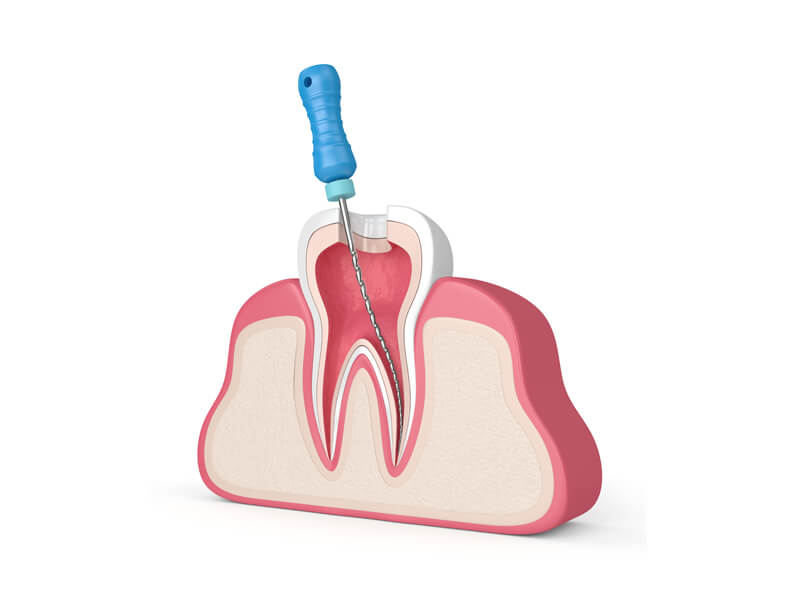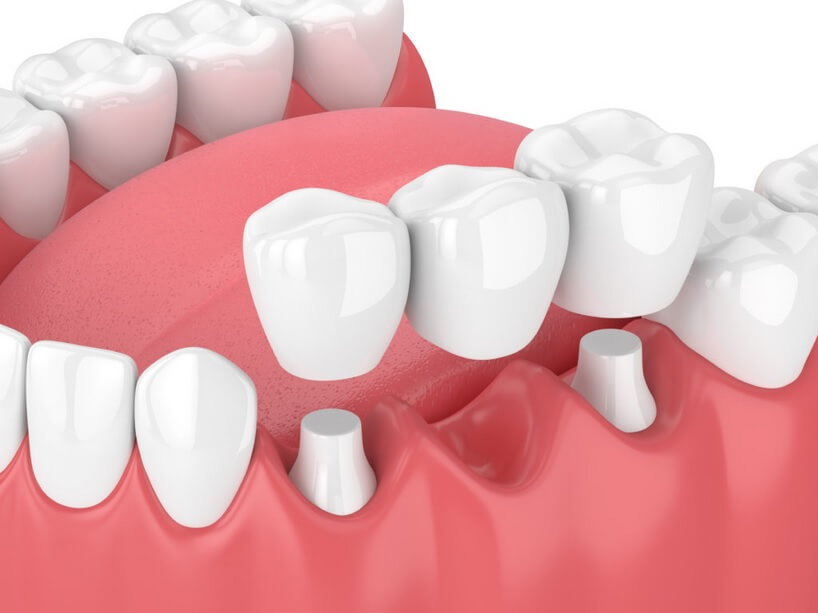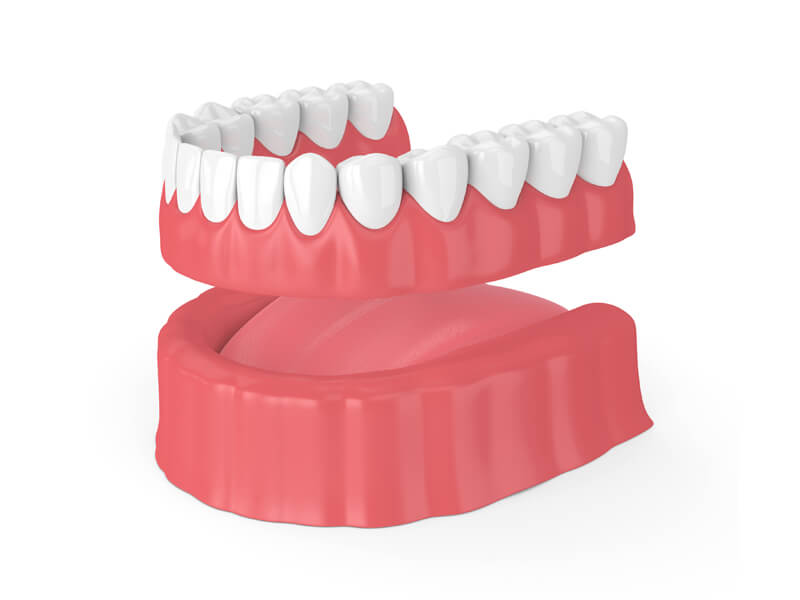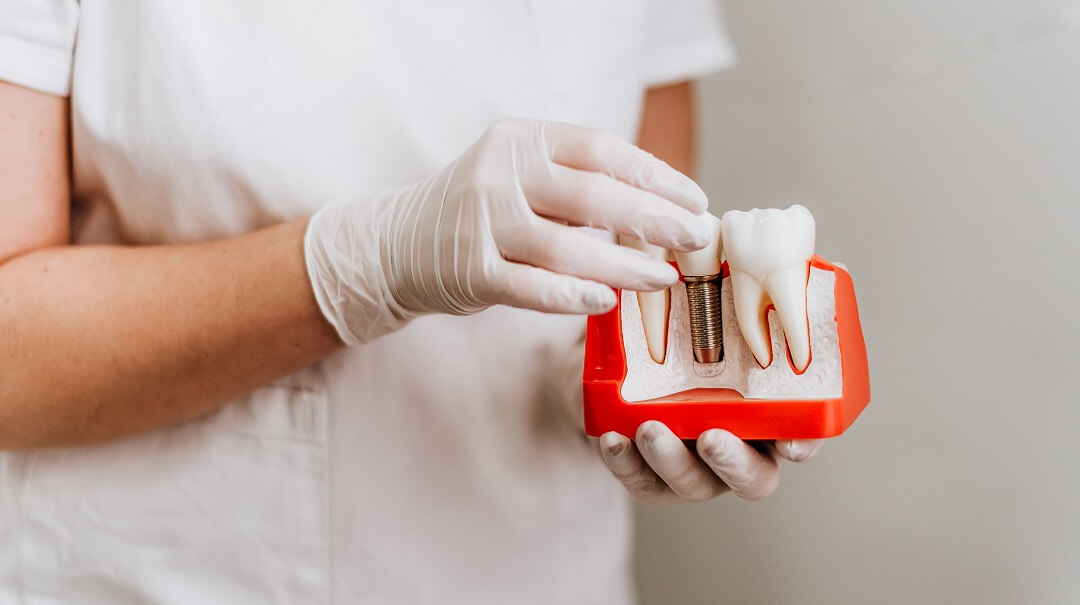Whether you lost a tooth due to trauma or a full arch of teeth due to dental decay or gum disease, a missing tooth can affect your smile and your self-esteem. Replacing these missing teeth is possible with a variety of different options. One of the most popular is dental implants. While dental implants are a permanent tooth replacement option, they are not a perfect match for everyone.
Here at Soundview Family Dental, we understand how important it is to you to replace your missing teeth and restore your smile. But what are the pros and cons of dental implants? What are the reasons not to get them?
Key Takeaways
- Dental implants cost $1,000 to $5,000 per implant and $12,000 to $25,000 for full mouth implants.
- Dental insurance may not cover or only partially cover dental implant costs.
- Dental implants require oral surgery with risks of complications.
- Dental implant procedures are time-consuming and may require multiple appointments and bone grafts.
- Dental implants may not be suitable for everyone, alternative treatments may be needed for certain health conditions or poor oral health.
What are the disadvantages of dental implants?
While dental implants can offer a permanent tooth replacement option, they are not suitable for everyone. Those with small jaws, poor oral health, smokers, and those with health conditions that affect bone healing are often not good candidates. Here are some of the disadvantages to consider.
1. Cost Consideration of Dental Implants
When considering dental restoration options, it’s important to take into account the long-term investment. One option that often comes up is dental implants. However, one major disadvantage associated with this procedure is its high cost.
Dental implants are considered a more permanent solution for missing teeth compared to dentures or bridges. They function like natural teeth and offer comfort and stability. But these benefits come at a steep price.
The average cost of a single implant can range between $1,000 and $5,000. If you want full-mouth implants, the cost can range between $12,000 and $25,000 per jaw. For many, this cost is not a financial option.
2. Not covered by dental insurance
In most cases, your dental insurance policies do not cover dental implants. If you are considering dental implants, it is always a good idea to check with your insurance first. While they are unlikely to cover the full cost of implants, some insurance companies will cover the crown portion of implants, which can help with the overall cost.
Further reading:
Does Dental Insurance Cover Implants
3. Requires oral surgery
Unlike other tooth replacement options, dental implants require oral surgery. As with any surgical procedure, there is always the risk of potential complications, such as problems with anesthesia or infection.
4. Surgical Risks and Complications
In addition to complications associated with surgery, there is a risk of other potential complications associated with dental implant surgery. These risks can include damage to surrounding teeth, delayed healing of the bone, nerve damage, prolonged bleeding, and jaw fractures.
-
- Infection: The risk of infection is present in any surgical procedure, including dental implant surgery. Infections may occur during or after the operation due to improper sterilization or post-operative care. Symptoms include pain, swelling, and pus formation around the implant site.
- Nerve Damage: Nerve damage is another possible complication of dental implant surgery. If an implant is placed too close to a nerve within your jawbone, you might experience chronic pain, tingling, or numbness in your natural teeth, gums, or lips.
- Sinus Problems: If implants placed in your upper jaw protrude into one of your sinus cavities, the result could be persistent sinus infections known as sinusitis.
5. Long Process and Healing Time
If you are looking for an immediate tooth replacement solution, dental implants are not your best option. Your dentist will evaluate your existing bone density to determine if the jawbone can support the implants when considering dental implants. In many cases, bone grafts are necessary to help build up the additional bone. These grafts must occur before implants and heal before implant surgery. Depending on the type of bone graft required, it could be up to a year before your jaw is ready.
Once the screws of the implants are put in place, there is another recovery period before installing the crowns. This second recovery period can take 3 to 18 months.
While the results of dental implants can be life-changing, it’s important to note that the lengthy process and healing time required between steps may not suit everyone. Some patients find this waiting period inconvenient or stressful. However, with patience and proper care during recovery periods, you will likely agree that your beautiful new smile was worth every moment!
6. Requirement for Healthy Jawbone
The success of dental implants is largely dependent on the health and density of your jawbone. A strong, healthy jawbone provides a solid foundation for the implant to securely anchor into, allowing it to function just like a natural tooth. However, not everyone has sufficient bone density in their jaws due to various reasons such as gum disease, tooth loss, or trauma.
The Importance of Bone Density
Adequate bone density is essential for dental implant surgery. The titanium post that acts as the root of your new artificial tooth needs something sturdy to hold onto – much like how roots anchor plants in soil. If there’s insufficient bone mass in your jaw, this anchoring process becomes difficult if not impossible.
Bone Grafting: An Additional Procedure
If you lack adequate bone density but still want dental implants, don’t lose hope! There are procedures available that can help restore lost bone mass and prepare your mouth for successful implantation. One common method is called bone grafting.
Bone grafting is a surgical procedure that involves transplanting pieces of bones from another part of your body (or using synthetic materials) into your jawbone. Over time these transplanted materials fuse with existing bones creating a stronger support structure needed by an implant.
However, important it may be, adding a step like this adds complexity and cost to the overall treatment plan which could be disadvantageous especially when considering dental implants as a solution for tooth loss. It’s crucial to discuss these factors with your dentist or oral surgeon before deciding on the best course of action.
7. Requires multiple appointments
Dental implants are not a “one-and-done” procedure. They will require multiple appointments and procedures to complete, especially if you require bone grafts before implants.
8. Restorations require replacement
The posts of dental implants are designed to last a lifetime. However, dental crown restorations do not and often need replacing every ten years or more. While your insurance may cover these, this additional expense should be considered when deciding on dental implants.
9. Potential bone loss risk
Dental implants are designed to help you maintain bone loss in your jaw over time. However, bone loss is normal as you age. If you experience too much bone loss through the years, your dental implant may lose support and need to be replaced. In this case, a bone graft may also be necessary.
10. Potential implant failure
Dental implants are typically effective for replacing missing teeth. However, not every dental implant is successful. On average, dental implants have a 5% to 10% failure rate, meaning your jaw will not accept and support the implant, leading to failure.
11. Aesthetic Concerns
One of the potential disadvantages that some patients may encounter with dental implants is aesthetic concerns. These can include a mismatch in color and shape between the implant and natural teeth, which might not provide the seamless appearance desired.
Mismatch in Color
Dental implants are designed to mimic your natural teeth as closely as possible. However, there could be instances where they don’t exactly match the color of your surrounding teeth. This discrepancy can become more noticeable over time as natural teeth change color due to factors like aging, smoking, or consumption of certain foods and drinks.
The good news is that experienced oral surgeons have techniques for addressing this issue. They will often recommend professional tooth whitening before placing an implant so that it matches your brighter smile.
Inconsistency in Shape
Besides color discrepancies, another aesthetic concern with dental implants could be a difference in shape compared to natural teeth. The size and form of an implant need to fit perfectly into the gap left by a missing tooth – but sometimes these dimensions differ from those of neighboring teeth leading to an uneven look.
This problem too has solutions according to our expert prosthodontists. With advancements in technology such as 3D imaging software, dentists can now create custom-made implants that accurately replicate the shape of your other teeth ensuring a uniform appearance across all smiles.
Who is not suitable for tooth implants?
As we mentioned above, not everyone is suitable for dental implant treatment. Many different factors can affect your ability to support dental implants successfully. While not all of these factors immediately disqualify you from dental implants, your oral surgeon will have to evaluate them during your initial consultation.
-
- Uncontrolled diabetes
- Cancer
- Previous jaw radiation
- Bone diseases affecting bone healing
- Smoking
- Alcoholism
- Uncontrolled gum disease
- Certain medications, such as steroids or immunosuppressants
- History of teeth grinding or clenching
Alternatives to dental implants
While dental implants are not always an option to replace missing teeth, there are alternative treatment options that can help save your teeth before tooth loss or replace missing teeth. At Soundview Family Dental, our oral surgeons will discuss these possible treatment options with you and decide which one will best meet your needs.

1. Root canal therapy
An infection within a tooth can be often addressed with root canal therapy to help save the tooth before removal is necessary. During this procedure, the dentist removed the infected area of the tooth and the pulp. Once removed, this inner portion of the tooth is filled with filling material to preserve the root and stability. A crown is then placed on the top to seal the tooth completely.

2. Gum disease treatment
In cases of severe gum disease, the damage can destabilize the teeth, making them feel loose. If caught early enough, gum disease treatment can help treat the gums, allowing them to heal and restore the stabilization of your natural teeth.

3. Dental bridge
If you are missing a single tooth, a traditional dental bridge is often a great way to replace the tooth. This restoration treatment involves a replacement tooth attached to two crowns. The crowns go over the surrounding teeth to provide stability, while the replacement tooth fills the open space. Unfortunately, this method is not as long-lasting as implants, and you can expect to replace them if they become chipped, broken, or come loose.

4. Full or partial dentures
Whether full or partial, dentures are dental prosthetic that replaces missing teeth. This is a removable option that allows you to replace missing teeth while still being able to remove them for cleaning. These are a much cheaper full-mouth option than dental implants, but they do not help you maintain bone density. As you age, the bone and gums will shrink, meaning you will need to be fitted for new dentures as this occurs.
Helping you achieve a healthy smile
Missing teeth can be difficult to deal with. Not only do they affect your smile, but they also affect your function and your ability to speak and chew the foods you love.
At Soundview Family Dental, we understand how important your smile is to you. Our team of caring professionals will work with you to find the perfect missing tooth solution.
To learn more about how we can help you achieve a healthy, beautiful smile, contact us online or call the office at (425) 563-6360 today to schedule an appointment.


